 Hej där! Well, this week the big excitement in Uppsala (and in other places too) was over some amazing sightings of the Norrsken, or Northern Lights, which lit up the sky with ribbons of amazing electric green – the photo is courtesy of my friend and very talented photographer James, who kindly let me use his photos, as they do the Lights a bit more justice than my camera could ever do! (He has more on Flickr, if you’re interested!) Seeing the Lights was an incredibly magical experience, and not something I was expecting to see in Uppsala given the number of people who had said I would have to go properly north – as in, Arctic Circle north – to see them.
Hej där! Well, this week the big excitement in Uppsala (and in other places too) was over some amazing sightings of the Norrsken, or Northern Lights, which lit up the sky with ribbons of amazing electric green – the photo is courtesy of my friend and very talented photographer James, who kindly let me use his photos, as they do the Lights a bit more justice than my camera could ever do! (He has more on Flickr, if you’re interested!) Seeing the Lights was an incredibly magical experience, and not something I was expecting to see in Uppsala given the number of people who had said I would have to go properly north – as in, Arctic Circle north – to see them.
Anyway, the linguistic subject for this week’s post is talking about the future in Swedish, because there are several ways of doing this and it wasn’t until I arrived in Sweden that I discovered that I had sort of been doing it wrongly, and sounding overly sure of things definitely happening when really, that was not how I wanted to sound. The first and most simple way of expressing the future is in using some kind of time marker with the present tense, e.g. “Imorgon åker jag till Stockholm”, literally “Tomorrow I go to Stockholm”, which sounds a little strange to English ears, but meaning “Tomorrow I’ll go to Stockholm”, or “Ikväll läser jag inte boken” (I’ll not read the book this evening).
The method I used far too much on arriving in Sweden was to use the modal verb “ska” followed by an infinitive, because of its similarity to the English “shall”. However, it more accurately equates to the English “will”, meaning that something is not only going to happen but it is decided upon and set in stone, no two ways about it, and so clearly much more definite in its use. For example, one might say “Jag ska åka till Stockholm på fredag” (I will travel to Stockholm on Friday) – and no snowstorms or delayed trains are going to stop me! A good comparison to demonstrate the use of ska comes in situations requiring real willpower; for example, “Nästa år ska jag göra den Stockholmska halvmaratonen” (“Next year I will do the Stockholm half marathon”) or “Nästa år gör jag den Stockholmska halvmaratonen” (“I’ll do the Stockholm half marathon next year (implied… or maybe the year after)”). So essentially, the trick is to be aware of using “ska” too much, as I did, and sounding like you are definitely very sure of a lot of things happening in the future, when really, your plans might well change.
“Komma att” plus an infinitive was really the way I should have been expressing my future ambitions, as it better expresses things which are essentially predictions; examples being “Det kommer att regna på tisdag” (It’s going to rain on Tuesday) or, “Jag kommer att vara jättetrött imorgon om jag inte lägger mig nu” (I’m going to be really tired tomorrow if I don’t go to bed now). As you can see, there is a lot less certainty involved, the actions can only really be expected to happen. And in fact, on that note, I probably will actually be very tired if I don’t go to bed now, all of this excitement over Norrskenen and Swedish future tenses is wearing my brain out! So, for now, godnatt och hej då!

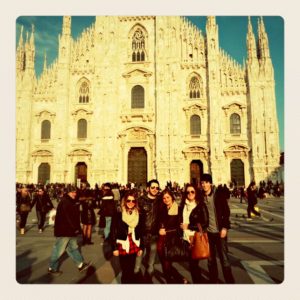 Buongiorno a tutti and welcome once again to On Location Italian. Being a language student means that I have many friends from back home who, like me, are currently undertaking their year abroad in some great European city and I have spent the past week taking full advantage of this!
Buongiorno a tutti and welcome once again to On Location Italian. Being a language student means that I have many friends from back home who, like me, are currently undertaking their year abroad in some great European city and I have spent the past week taking full advantage of this!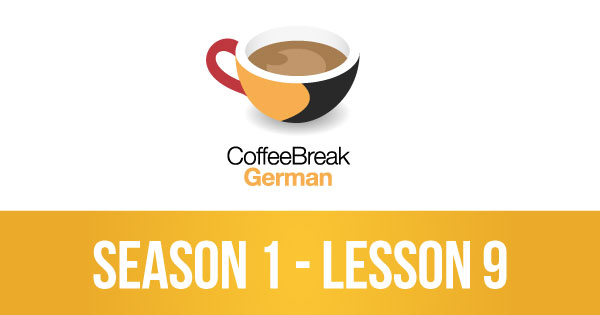
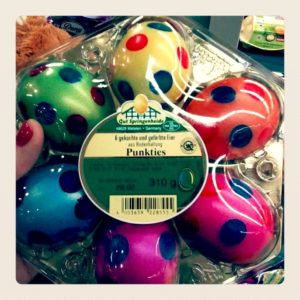 Hallo zusammen! Hey, everyone!
Hallo zusammen! Hey, everyone!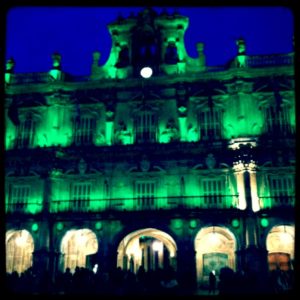 ¡Hola y bienvenidos! Welcome to another installment of On Location Spanish, once again coming to you from Iain in the University town of Salamanca.
¡Hola y bienvenidos! Welcome to another installment of On Location Spanish, once again coming to you from Iain in the University town of Salamanca.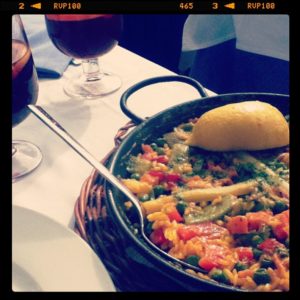 Bonjour tout le monde, it’s Rose here. I’m not long back from a few weeks’ holidays from school for les vacances d’hiver, the winter holidays. It feels like I’m always on holiday!
Bonjour tout le monde, it’s Rose here. I’m not long back from a few weeks’ holidays from school for les vacances d’hiver, the winter holidays. It feels like I’m always on holiday!
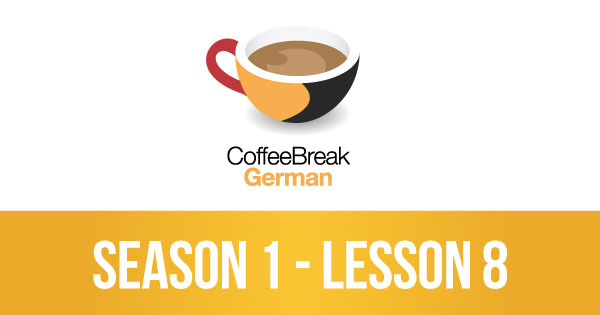
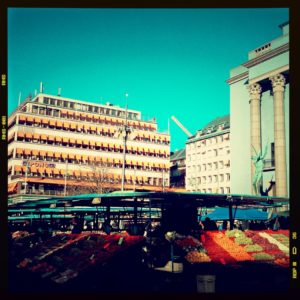 Tja! Well, the past weekend it was, as promised, practically summer in Sweden. OK, that might be a slight exaggeration – but I’m pretty sure at some point over the weekend thermometers were definitely reaching that ultimate high of 6°C! Definitely shorts and t-shirt weather, I think you’ll agree. My best friend was returning from a short break in Berlin, where he’d been having a sort of ‘reunion’ with the other teaching assistants he met whilst doing a Comenius placement in France (Comenius being the equivalent of Erasmus except the EU aids language teaching placements instead of university places), and so we decided to make the most of the warm weather in Stockholm instead of heading straight back to Uppsala.
Tja! Well, the past weekend it was, as promised, practically summer in Sweden. OK, that might be a slight exaggeration – but I’m pretty sure at some point over the weekend thermometers were definitely reaching that ultimate high of 6°C! Definitely shorts and t-shirt weather, I think you’ll agree. My best friend was returning from a short break in Berlin, where he’d been having a sort of ‘reunion’ with the other teaching assistants he met whilst doing a Comenius placement in France (Comenius being the equivalent of Erasmus except the EU aids language teaching placements instead of university places), and so we decided to make the most of the warm weather in Stockholm instead of heading straight back to Uppsala.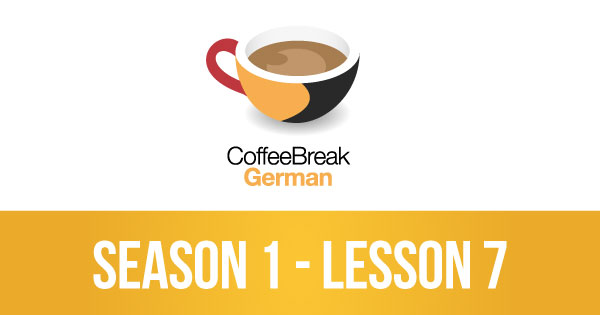
 Buongiorno a tutti and welcome to On Location Italian! Now that we are into the month of March the cold, snowy days of winter are fading into the distance and leaving the way for some long awaited rays of sunshine and the clear blue skies of spring to take over. It therefore seemed the perfect season to visit the fattoria (“farm”) run by a friend that I have made here in Verona. So earlier in the week I took the short car journey ride with a group of friends to the beautiful fattoria just on the outskirts of Verona.
Buongiorno a tutti and welcome to On Location Italian! Now that we are into the month of March the cold, snowy days of winter are fading into the distance and leaving the way for some long awaited rays of sunshine and the clear blue skies of spring to take over. It therefore seemed the perfect season to visit the fattoria (“farm”) run by a friend that I have made here in Verona. So earlier in the week I took the short car journey ride with a group of friends to the beautiful fattoria just on the outskirts of Verona. Hallo zusammen, it’s Holly here, back with another blog post. I’m still having a great time over here in Germany and I am constantly learning new words and phrases. A couple that I have learnt recently are überglücklich sein (to be on top of the world) and zu schön, um es in Worte zu fassen (too brilliant for words). I do, in fact, feel on top of the world just now and my year abroad really is too brilliant for words!
Hallo zusammen, it’s Holly here, back with another blog post. I’m still having a great time over here in Germany and I am constantly learning new words and phrases. A couple that I have learnt recently are überglücklich sein (to be on top of the world) and zu schön, um es in Worte zu fassen (too brilliant for words). I do, in fact, feel on top of the world just now and my year abroad really is too brilliant for words!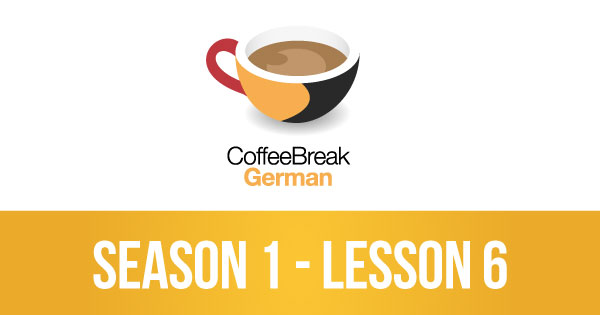
 Hej! Hur är läget? (“How’s it going?”) With March coming in now, we are finally starting to hope for a bit of snow melt and the return of some sunshine here in Uppsala, although I think it will still be a few weeks before we see much real improvement. I am assured that Sweden in Spring will be lovely, but I’ve yet to see any evidence of that!. Anyway, this week I wanted write about the act of being polite in Swedish. When I first started learning Swedish I can remember being very surprised at the lack of the word for “please”, thinking it very forward thinking and Scandinavian, and also very difficult for a well-mannered Brit to get used to it! What I did not realise at that time is the myriad of ways Swedish has not only for generally being polite, but more specifically for expressing thanks. Also, I have found that varying the way you say “thank you” in Swedish does actually make you sound more Swedish, always helpful when you are trying to pass yourself off as a native!
Hej! Hur är läget? (“How’s it going?”) With March coming in now, we are finally starting to hope for a bit of snow melt and the return of some sunshine here in Uppsala, although I think it will still be a few weeks before we see much real improvement. I am assured that Sweden in Spring will be lovely, but I’ve yet to see any evidence of that!. Anyway, this week I wanted write about the act of being polite in Swedish. When I first started learning Swedish I can remember being very surprised at the lack of the word for “please”, thinking it very forward thinking and Scandinavian, and also very difficult for a well-mannered Brit to get used to it! What I did not realise at that time is the myriad of ways Swedish has not only for generally being polite, but more specifically for expressing thanks. Also, I have found that varying the way you say “thank you” in Swedish does actually make you sound more Swedish, always helpful when you are trying to pass yourself off as a native!